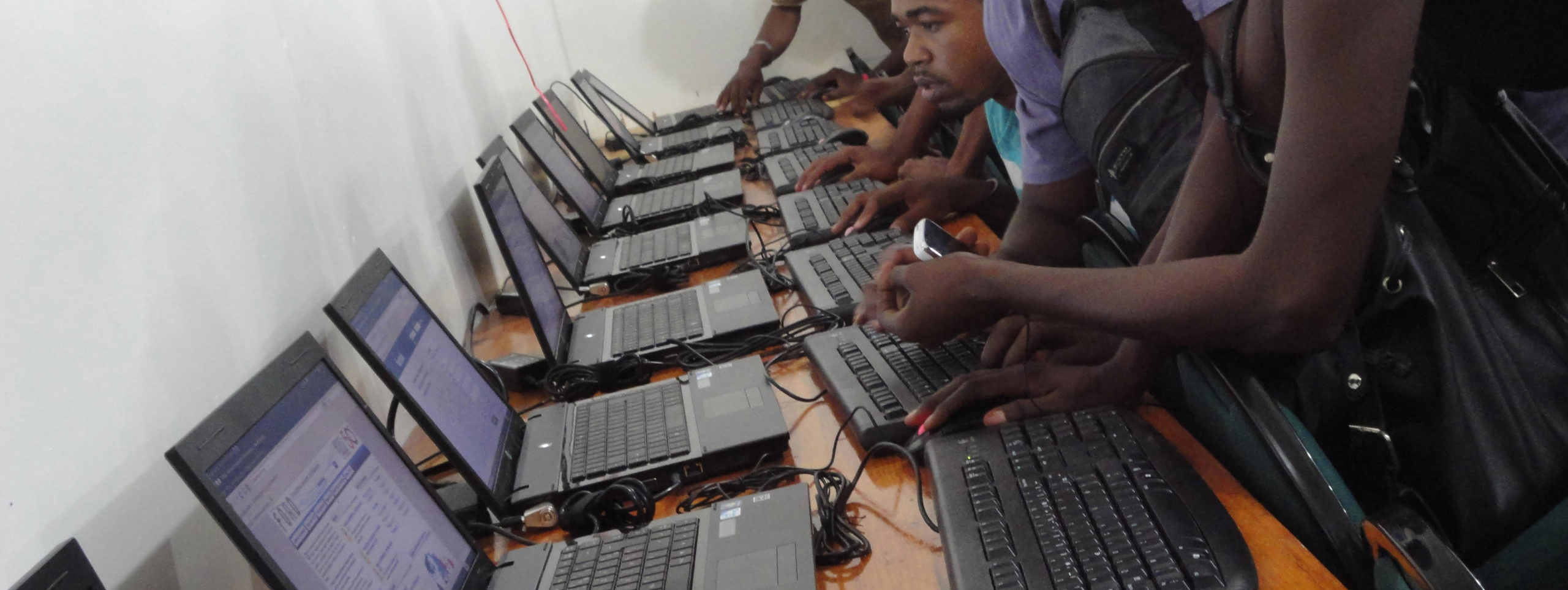The Africa Digital Campus project, led by the Institute of Research for Development (IRD) and the West and Central African Research and Education Network (WACREN), in partnership with the Agence Universitaire de la Francophonie (AUF), aims to establish rapid cooperation with two West African countries, Burkina Faso and Benin, with a view to strengthening the e-learning offer (distance learning) of universities. It thus aims to contribute to and ensure the continuity and quality of higher education and research in a context where the role of digital technology in achieving these two objectives has been exacerbated by the Covid 19 health crisis. The project starts in November 2021 for a duration of 24 months.
Many African countries have embraced distance education as a means of addressing the challenge of citizen education and the massification of higher education that they face, with several distance learning centres and virtual universities established over the past decade.
But the critical issue of the availability of adequate IT infrastructure and advanced services to enable access to resources, to facilitate learning processes and assessments, persists on the continent. This has been highlighted by the current COVID 19 crisis, with millions of African students denied access to campuses.
At the same time, affordable access to adequate connectivity remains a challenge as very few research and higher education institutions are currently connected to NRENs, due to the high cost of last mile connectivity and inefficient campus networks.
ACTION
The Africa Digital Campus project aims to :
• To provide distance access to students of the Virtual University of Burkina Faso and a pilot university in Benin under the aegis of the Agency for Digital Development to a quality online training offer;
• Strengthen the use of e-learning on a local scale.
It is a pilot project that aims to convince decision-makers to go national at the end of the project, in order to eventually reach all students in both countries. The project’s principles of action are the pooling and exchange of knowledge between the various stakeholders. In order to improve the representativeness of women and to fight against gender stereotypes in higher education, special attention is given to the inclusion of women in several project activities.
These actions are organized into four main components:
• On E-learning, to strengthen the online training offer of the two beneficiary structures;
• On Infrastructure and Equipment, to provide teachers and students with access to the university’s e-learning platform with sufficient throughput;
• To share knowledge, to exchange experiences and good practices between higher education and research structures offering e-learning;
• Advocacy to convince decision-makers to sustain the connectivity and e-learning solutions implemented by the project on a local scale and to scale up to national level.

ORGANIZATION
The governance of the project is structured in 3 levels of action:
The management level is provided by the project leaders, IRD and WACREN.
The decision-making level is ensured by the steering committee composed of the two project leaders, the AUF in charge of coordinating the E-Learning component of the project, the two beneficiary universities, and potentially external experts.
Finally, the implementation is ensured by all the actors of the project (other potential partners may be solicited).
PARTNERS
The Agence Universitaire de la Francophonie (AUF) is a partner in the project because of its experience in developing teaching, research and innovation in Africa.

RESULTS / IMPACTS
About fifty teacher-researchers in Burkina Faso and Benin are trained and accompanied until the production of at least one course (teaching unit) each. The teachers are autonomous in designing and disseminating the e-learning courses.
The network connectivity and learning platforms of UVBF and ADN in Benin are strengthened: about 1,000 students from Burkina Faso and Benin connect and use a quality e-learning offer at a distance.
Knowledge sharing is taking place between the two countries, and even at the regional level (via WACREN): the decision-makers are convinced of the relevance of the system deployed to go to the national level.
